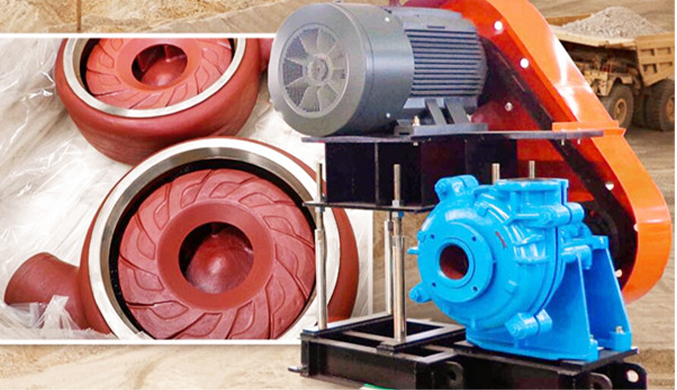English
- Afrikaans
- Albanian
- Amharic
- Arabic
- Armenian
- Azerbaijani
- Basque
- Belarusian
- Bengali
- Bosnian
- Bulgarian
- Catalan
- Cebuano
- Corsican
- Croatian
- Czech
- Danish
- Dutch
- English
- Esperanto
- Estonian
- Finnish
- French
- Frisian
- Galician
- Georgian
- German
- Greek
- Gujarati
- Haitian Creole
- hausa
- hawaiian
- Hebrew
- Hindi
- Miao
- Hungarian
- Icelandic
- igbo
- Indonesian
- irish
- Italian
- Japanese
- Javanese
- Kannada
- kazakh
- Khmer
- Rwandese
- Korean
- Kurdish
- Kyrgyz
- Lao
- Latin
- Latvian
- Lithuanian
- Luxembourgish
- Macedonian
- Malgashi
- Malay
- Malayalam
- Maltese
- Maori
- Marathi
- Mongolian
- Myanmar
- Nepali
- Norwegian
- Norwegian
- Occitan
- Pashto
- Persian
- Polish
- Portuguese
- Punjabi
- Romanian
- Russian
- Samoan
- Scottish Gaelic
- Serbian
- Sesotho
- Shona
- Sindhi
- Sinhala
- Slovak
- Slovenian
- Somali
- Spanish
- Sundanese
- Swahili
- Swedish
- Tagalog
- Tajik
- Tamil
- Tatar
- Telugu
- Thai
- Turkish
- Turkmen
- Ukrainian
- Urdu
- Uighur
- Uzbek
- Vietnamese
- Welsh
- Bantu
- Yiddish
- Yoruba
- Zulu
Telephone: +86 13120555503
Email: frank@cypump.com
Nov . 22, 2024 16:17 Back to list
sewer ejector pump cost
Understanding Sewer Ejector Pump Costs
When it comes to managing wastewater in residential and commercial properties, sewer ejector pumps play a vital role. These pumps are designed to move sewage from lower elevation levels to higher ones, typically when gravity drainage is not feasible. As homeowners and property managers consider their options, understanding the costs associated with sewer ejector pumps becomes essential.
What Is a Sewer Ejector Pump?
A sewer ejector pump is a type of pump utilized to transport wastewater from a basement or below-grade location to a septic tank or municipal sewer system. Unlike standard sump pumps that handle groundwater, ejector pumps are equipped with a grinding mechanism that breaks down solid waste and allows it to be pumped through pipes. This capability is crucial in preventing clogs and ensuring the efficient disposal of sewage.
Factors Influencing Costs
1. Type of Pump The cost of sewer ejector pumps can vary depending on the type. There are different models available, ranging from basic residential units to heavy-duty commercial-grade pumps. Residential models typically range from $300 to $1,500, while commercial options can go as high as $5,000 or more.
sewer ejector pump cost

2. Installation Costs The expense of installing a sewer ejector pump can add to the overall cost. Installation requires plumbing knowledge and may involve excavation work, electrical connections, and additional materials such as piping and fittings. Homeowners can expect installation costs to range from $500 to $2,000, depending on the complexity of the job and local labor rates.
3. Pumping Capacity The capacity of the pump is another significant factor in determining cost. Pumps are rated by their ability to handle specific volumes of sewage per minute. Higher capacity pumps that facilitate large-scale waste management will generally cost more than smaller units suitable for standard residential use.
4. Brand and Quality As with any product, the brand and quality of the sewer ejector pump can greatly influence the price. Established brands with a reputation for durability and reliability may command higher prices. However, investing in a high-quality pump can lead to savings in the long run due to fewer repairs and extended operational lifespans.
5. Maintenance and Operating Costs After the initial installation, ongoing maintenance and operating costs should also be considered. Regular maintenance can help extend the life of the pump and ensure it operates efficiently. This could include routine inspections, occasional repairs, and replacement of worn components. Owners should budget for these future expenses to avoid unexpected costs.
Conclusion
In summary, the costs associated with sewer ejector pumps encompass a range of factors including the type of pump, installation expenses, pumping capacity, brand quality, and ongoing maintenance. Homeowners and property managers should conduct thorough research and potentially consult with professionals to choose the right pump for their specific needs. By investing in a quality sewer ejector pump and planning for its installation and maintenance, they can ensure effective and efficient waste management, safeguarding their properties for the long term. Understanding these costs is the first step toward making an informed decision for effective wastewater management.
-
Horizontal Split Case Pump with GPT-4 Turbo | High Efficiency
NewsAug.01,2025
-
ISG Series Pipeline Pump - Chi Yuan Pumps | High Efficiency, Durable Design
NewsAug.01,2025
-
Advanced Flue Gas Desulfurization Pump with GPT-4 Turbo | Durable & Efficient
NewsJul.31,2025
-
ISG Series Vertical Pipeline Pump - Chi Yuan Pumps | Advanced Hydraulic Design&Durable Construction
NewsJul.31,2025
-
ISG Series Vertical Pipeline Pump - Chi Yuan Pumps | Energy Efficient & Low Noise
NewsJul.31,2025
-
pipeline pump - Chi Yuan Pumps Co., LTD.|High Efficiency&Low Noise
NewsJul.31,2025










